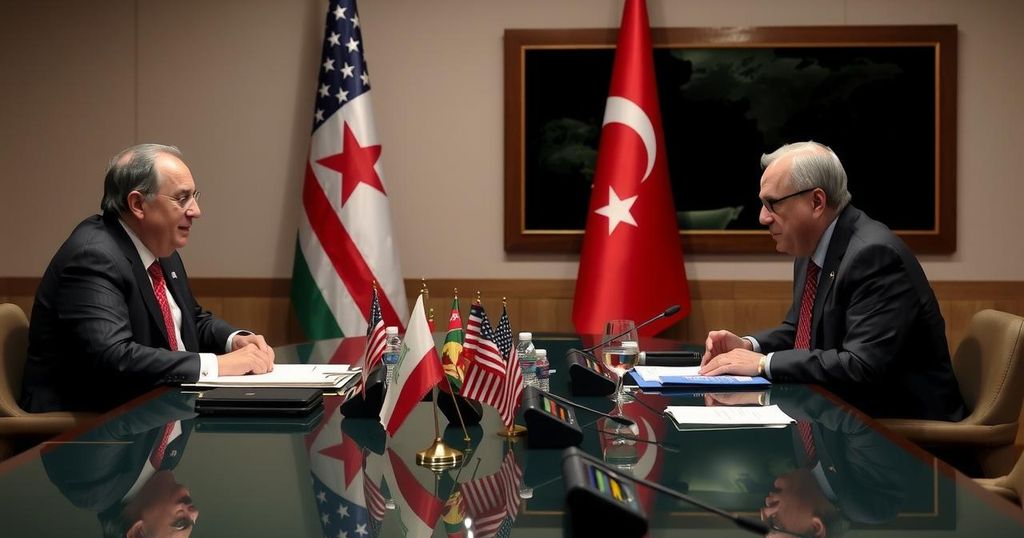U.S., Arab League, and Turkey Diplomats Meet on Syria’s Transition Post-Assad

Top diplomats from the U.S., Arab League, and Turkey met in Jordan to discuss Syria’s transition following the fall of Bashar Assad’s government. They emphasized the importance of an inclusive government and the need for humanitarian aid amidst escalating regional instability. Meanwhile, Turkey reopened its embassy in Syria, marking a significant diplomatic shift. Recent Israeli airstrikes in Gaza have also exacerbated the humanitarian crisis in the region.
Top diplomats from the United States, the Arab League, and Turkey convened in Jordan to deliberate on Syria’s political transition following the recent collapse of President Bashar Assad’s government. During this meeting, U.S. Secretary of State Antony Blinken joined foreign ministers from the European Union and senior United Nations officials to discuss priorities for Syria’s new leadership. Notably, no representatives from Syria attended the discussions.
The removal of Assad marks a critical juncture in a region already grappling with instability due to the ongoing Israel-Hamas conflict and escalating tensions with Hezbollah. The humanitarian crisis in Gaza continues to deepen, exacerbated by the impacts of the Israeli military operations that have killed thousands, including many civilians.
Palestinian officials reported recent airstrikes in Gaza, including one that killed at least ten individuals during a municipal gathering in Deir al-Balah. These developments underscore the urgent humanitarian situation amidst the backdrop of regional turmoil.
Furthermore, Turkey has reestablished its embassy in Syria, signaling a shift in diplomatic dynamics. This move is particularly significant as Turkey had previously severed diplomatic ties with Assad’s regime over a decade ago due to the civil war’s escalating violence.
In his remarks during the meetings, Secretary Blinken emphasized the need for an inclusive Syrian government that respects women and minority rights, rejects terrorism, and secures chemical weapons abandoned by the Assad administration. Blinken’s regional tour aims to foster cooperation and support for a Syrian-led transition, with the United Nations playing an essential role. This sentiment was echoed by U.N. Special Envoy Geir Pederson, who stressed the importance of a credible political process in Syria allowing for the prompt delivery of humanitarian aid.
The current geopolitical climate in the Middle East has been significantly influenced by the recent shift in power in Syria, following the downfall of President Bashar Assad’s regime. This transition has arisen amidst a backdrop of heightened tensions caused by the ongoing Israel-Hamas war, which has left many civilians in dire humanitarian distress. As various nations meet to discuss the future of Syria, the importance of establishing a stable and inclusive governance system is paramount to prevent further regional destabilization.
The discussions among U.S., Arab League, and Turkish diplomats signify a concerted effort to navigate the complexities of Syria’s political transition. Emphasis on inclusivity and respect for rights within the new governance reflects a commitment to genuine reform and humanitarian considerations, crucial for long-term stability. As regional dynamics continue to evolve, ongoing international collaboration will be vital in ensuring a conducive environment for reconstruction and peace.
Original Source: abcnews.go.com








